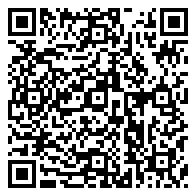


Understanding and designing satellite communication systems is essential for modern communication networks. Satellite link budget training is a cornerstone of this understanding, enabling professionals to analyze and optimize satellite communication systems effectively. This course covers link budget analysis in satellite communication, focusing on practical applications using SatMaster, a leading tool in the field.
Participants will explore concepts such as what is link budget analysis, satellite communications network design, and the types of satellite communication systems. This program combines theory with hands-on workshops to ensure participants gain a comprehensive understanding of satellite engineering, link budget calculation, and interference management strategies.
Whether you're a satellite communications engineer or interested in learning the advantages of communication systems using satellites, this course offers in-depth insights and practical skills to excel in the field.
By completing this course, participants will:
Session 1: Fundamentals of Satellite Link Budgets
Session 2: Satellite Footprints and Propagation Effects
Session 3: Introduction to SatMaster
Session 1: Rain Models and Modulation Techniques
Session 2: Link Budget Fundamentals
Session 1: Earth Station Design and Antenna Characteristics
Session 2: Uplink Design and Transponder Loading
Session 1: Optimization Techniques for Link Budgets
Session 2: Interference and Mitigation Strategies
Session 1: C/I Estimation and VSAT Operations
Session 2: Case Studies and Final Workshop
This satellite engineering course offers an unparalleled opportunity to delve into the intricacies of satellite link budget analysis. By mastering tools like SatMaster and gaining a deep understanding of what is link budget analysis, participants will be equipped to excel in the fast-evolving field of satellite communications.
Join this course to unlock the potential of satellite communication training, enhance your expertise, and lead with confidence in designing and managing advanced satellite communication systems. Whether you're a professional seeking to elevate your career or a student aspiring to break into the industry, this course is your gateway to success!
